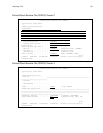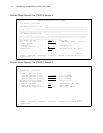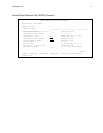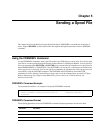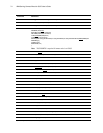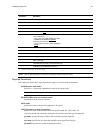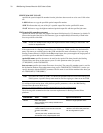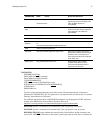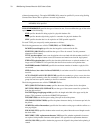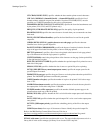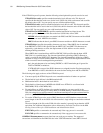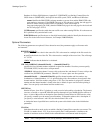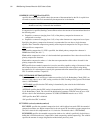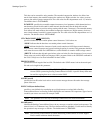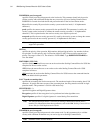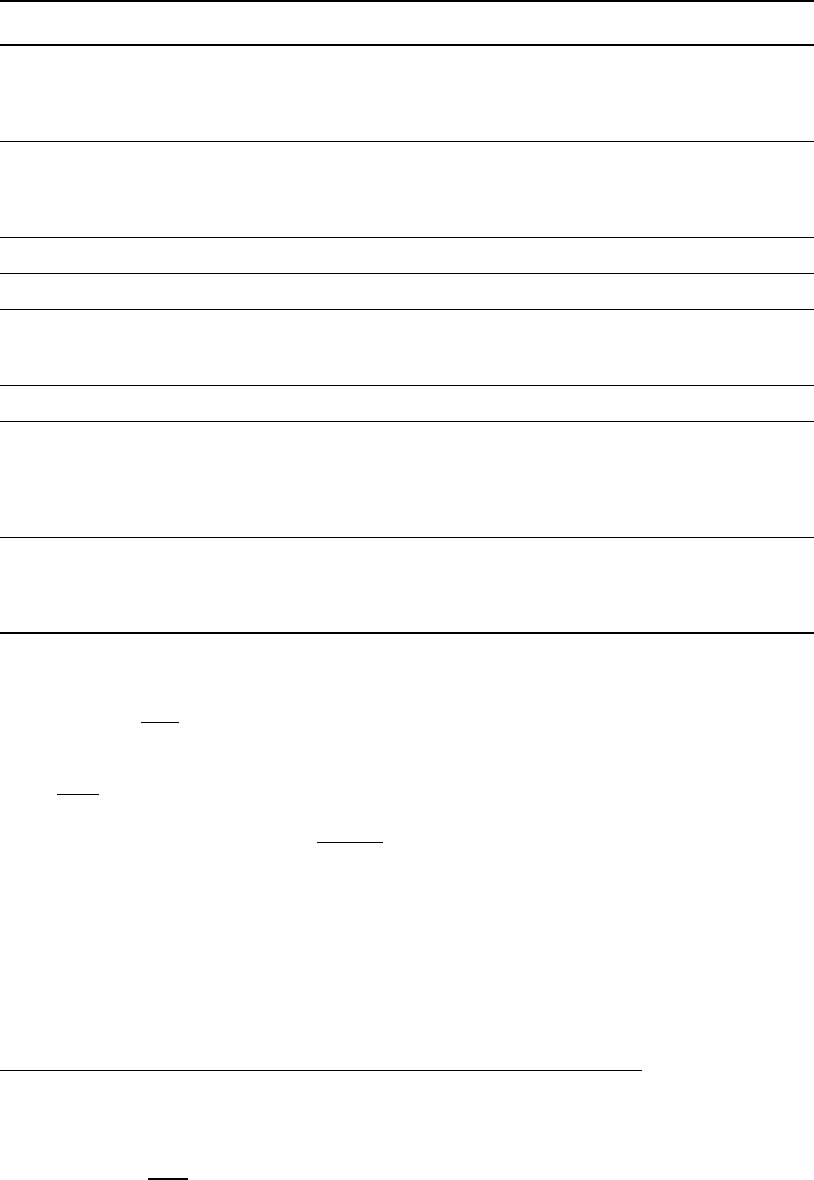
Sending a Spool File 77
TOSYSOPTS(‘
DECMPR(*YES|*NO
)
EXITCMD(valid i5/OS command)
FAILCMD(valid i5/OS command)
TYPE(FILE
|MBR|SPLF)
XTRAN(table-name) [XTRANLSO(so-code)|
XTRANLSI(si-code)|XTRANLDATA(MIXED
|DBCS)]
CCSID(nnnnn)
EORCHAR(xxxx)
’)
specifies system operation parameters at the remote node. The maximum number of characters
permitted for TOSYSOPTS is 2K. This parameter is only required when the remote file is on another
Sterling Connect:Direct for i5/OS node.
For additional information about valid SYSOPTS parameters, see the appropriate COPY statement
chapter of the IBM Sterling Connect:Direct Processes Web site at
http://www.sterlingcommerce.com/documentation/processes/processhome.html.
EXITCMD specifies a command to be executed only if the copy process is successful.
FAILCMD specifies a command to be executed only if the copy process is not successful.
DECMPR(*YES|*NO
) states whether the remote Sterling Connect:Direct should decompress the
received file. DECMPR(*NO) instructs the remote system to place the received data in a database file
Spool File Support
spooled-file-name
Do not use member names longer than
eight characters when sending to z/OS,
VSE, and MSP. Results are
unpredictable.
OS/390, VSE,
MSP
Standard z/OS DSN naming conventions. Single quotes allow special characters.
Do not use member names longer than
eight characters. The results are
unpredictable.
VM Fully qualified file-name
Tandem \system.$volume.subvolume.filename
Microsoft
Windows
drive:\directory\subdirectory\filename
or
\\servername\sharepointname\subdirectory\filename
UNIX /directory/subdirectory/filename
OpenVMS node::device:[directory]filename.type;version When you are copying a file, the file
specification must be enclosed in single
quotation marks if it uses spaces or
other special characters not recognized
by the other node.
Stratus VOS Fully qualified path and file name Enclose the file name in double
quotation marks when you use a
reserved word (statement name or
keyword) for the file name.
SNODENVIRN TDSN Format Special Considerations



